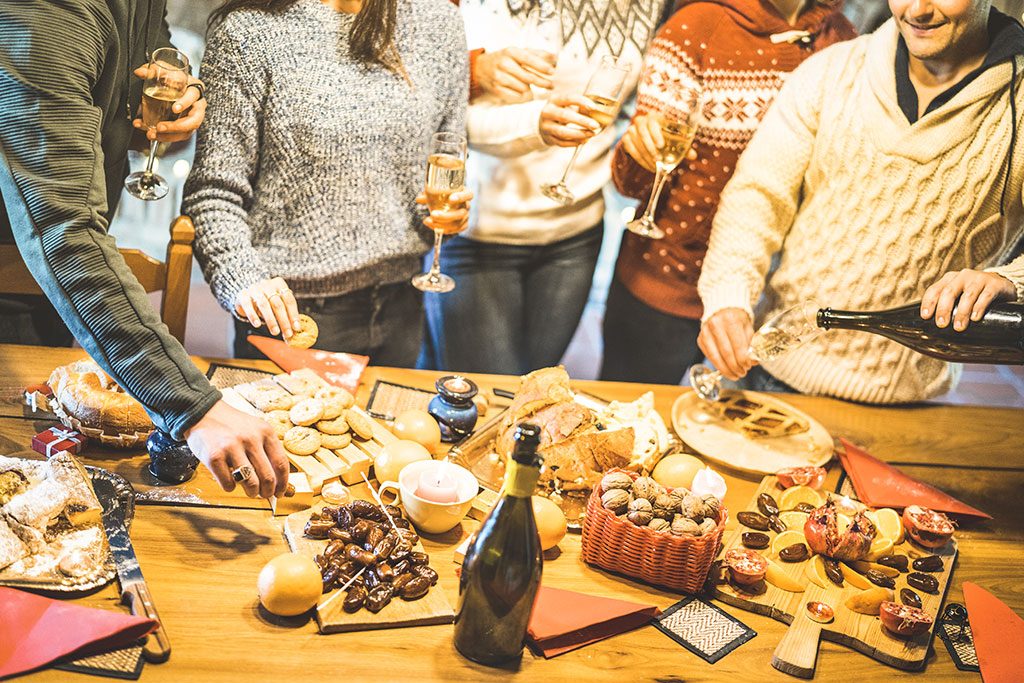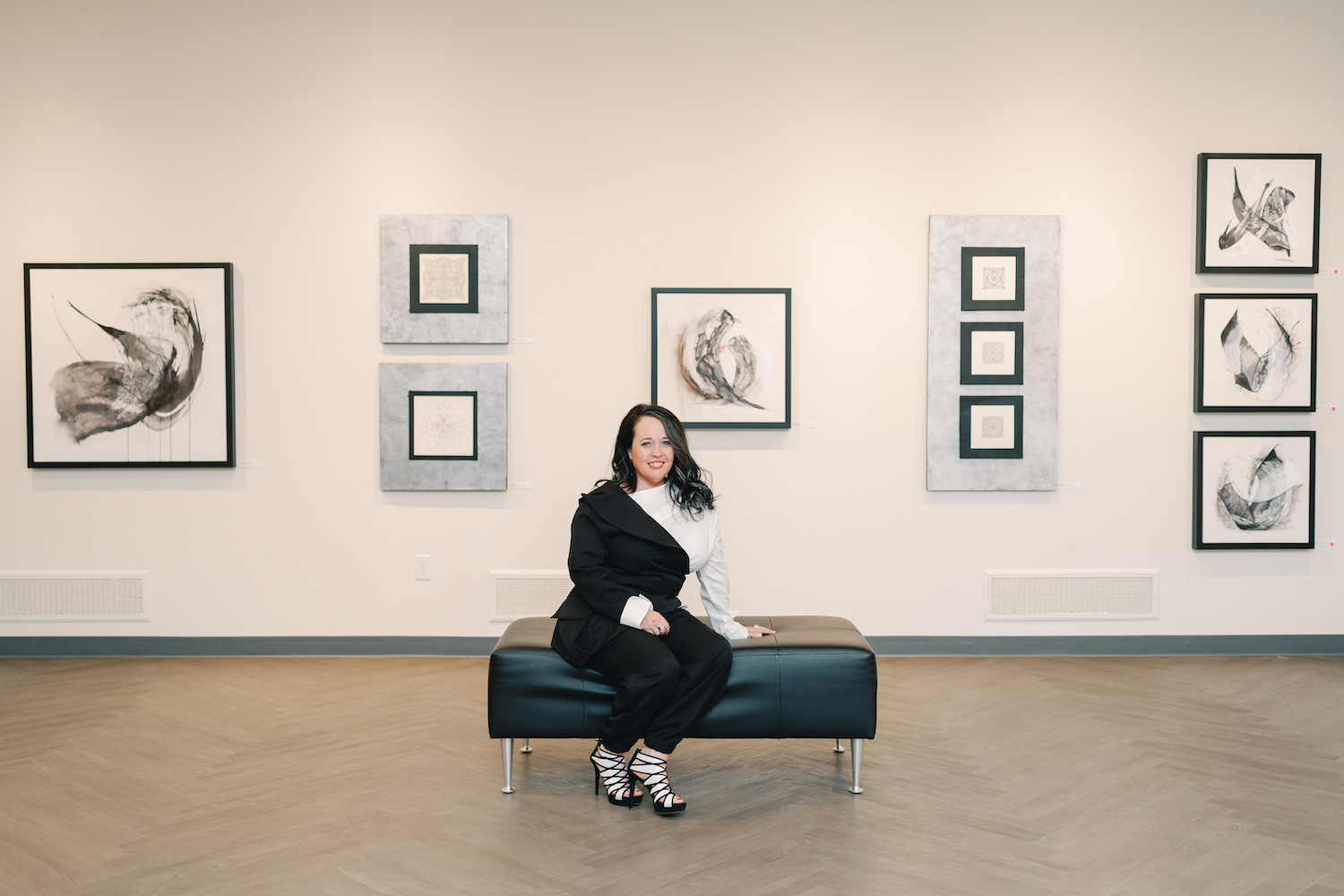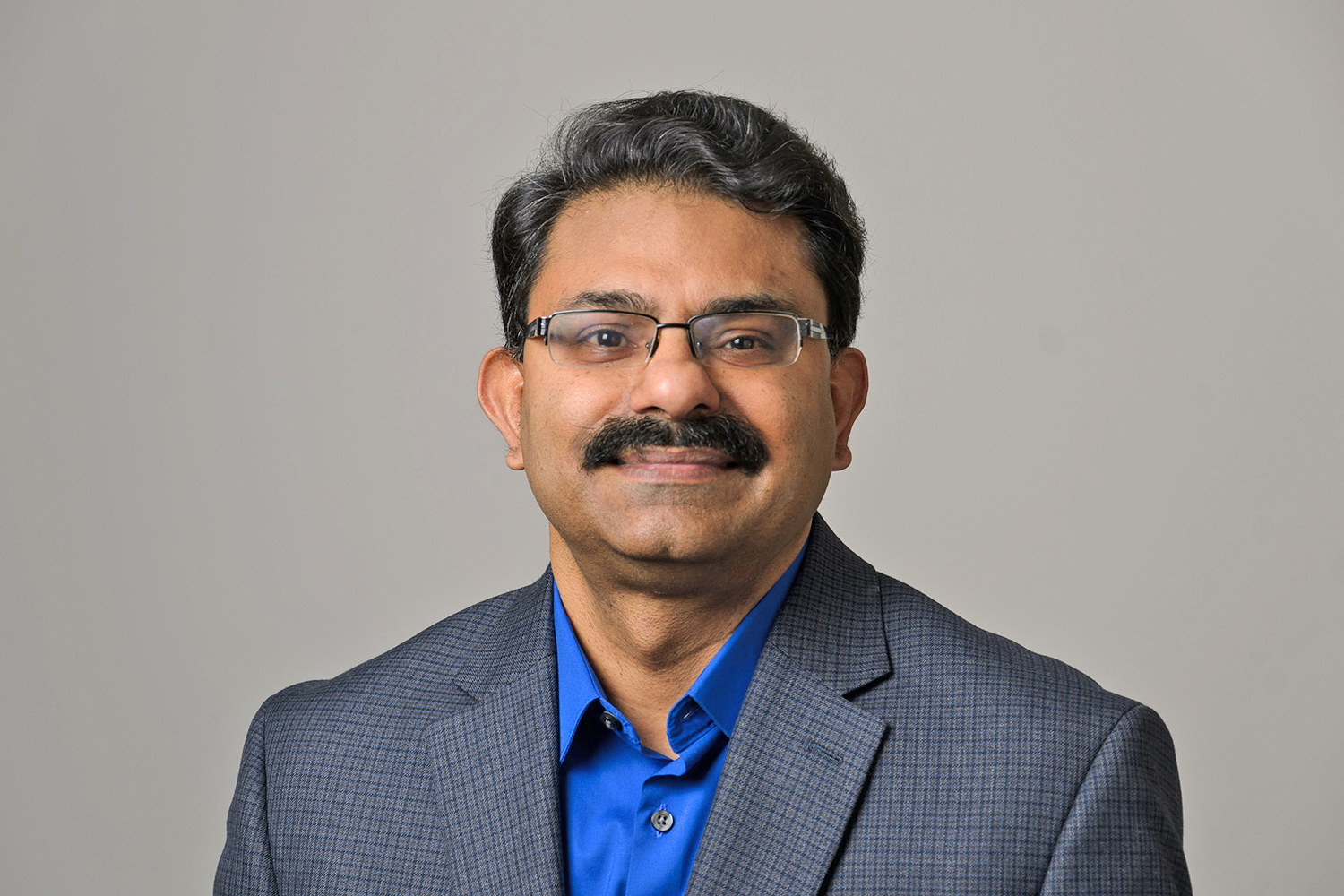It can be hard enough to stay on track with diet, exercise, sleep, and stress management any time of year. Now try it surrounded by seasonal temptations and the burden of meeting everyone’s holiday expectations. Two UConn Health experts are here to help: Linda York is a registered dietitian and certified diabetes educator, and Brad Biskup is a physician assistant who heads the Lifestyle Medicine Program in the Pat and Jim Calhoun Cardiology Center.
What do you observe in your practice about the health challenges folks face around the winter holidays?

York: In my diabetes and nutrition practice, I think holiday health challenges exist. Let’s face it, holidays focus on food. For those trying to maintain their weight loss, achieve proper glucose control, or comply with a gluten-free diet, this can be difficult. Nutritionally bankrupt foods (cakes, cookies, chips) are all around the home the entire holiday season, and are very tempting. Also, during this time of year, many people experience sadness, depression or anxiety, and financial uncertainty, which can all lead to overeating to make them feel better.
Biskup: There are a variety of issues people face during the holiday from a lifestyle perspective. It could be related to their diet or not exercising/being active, but most of it actually involves sleep and stress. Some people have a hard time with the holidays and may be more anxious or stressed, whereas, other people enjoy what the season is about and embrace it. I feel the more grounded and having strong support around you is key. I really try to focus on giving people the tools to deal with stress/anxiety since this has a significant effect on what we eat, motivation to exercise, and how we sleep.
Which are most avoidable?
York: First, try not to have tempting foods around the house after the holidays. If you are hosting, let others bring them home. Enjoy holiday eating, and after the holiday celebration, it is time to get back on track. Remember when it comes to food, “out of sight, out of mind.” As far as feeling sadness, depression or anxiety, plan on talking with a friend, therapist or family member this time of year or do volunteer work to help others. Talking can be so helpful. Lastly, be kind to yourself. Take good care of yourself by keeping up with your sleep routine, walking, dancing or doing any kind of exercise that you enjoy alone or with a friend.

Biskup: I think one of the most important things to focus on during the holiday season is self-care. Take time every day to either meditate or do slow, deep breathing, and then make a realistic plan for the day. Also, throughout the day when you feel the stress/anxiety, get re-centered with slow, deep breathing. Understand the “fight-or-flight” response in our nervous system is built on survival and that we have a “rest-and-repose” nervous system that is stimulated with deep breathing. Remember that there is a difference between “mindfulness” and “mind fullness”!
What do you recommend to patients to help navigate the holiday season in a healthier way?
Biskup: One of the more important things that helps is to not feel like they are going through the season alone. If you don’t have a lot of family support, try to see a therapist more frequently. Embrace people around you who are positive and help you relax and understand to “push the other button” with slow, deep relaxation breathing as well as bringing in spirituality if they are spiritual.
York: To navigate holidays in a healthier way, I would recommend keeping your exercise routine going, staying on track with your sleep routine, and planning ahead if there is a party or celebration that involves eating.
How can we set ourselves up for success leading up to the feast/party?
York: Whether it is “braving the buffet” or going to a party, there are things you can do that will help, such as staying on schedule with your meals, eating a mini-meal of protein and salad beforehand to prevent you from mindless overeating at the event, and bringing your healthy beverage of choice, veggie platter or appetizer to the party. I often find that people appreciate it when others bring a healthier appetizer. It tends to get eaten up quickly.
Biskup: One of the more important things to remind ourselves is that the social events during the holiday season are about being social! Try not only to be mindful of what you are eating but to slow down and enjoy the food. Also, try to be more mindful the week before and after a social event by focusing on lots of fruits, vegetables, and nuts. Another trick is to always begin your meal with a large glass of water and either a salad or vegetable. This can help with satiety.
What’s an example of a good routine to try to follow?
Biskup: Try setting up a weekly goal as you go through the holiday season. Think of what your schedule looks like for the week and set up some small goals for your nutrition, activity/exercise, stress, and sleep. An example would be:
- Nutrition: Daily, 1/3 cup of nuts; two servings each of fruit and vegetables; five glasses of water, with one during each meal.
- Activity/exercise: Don’t have time to exercise? Park further away at work and when shopping; take the stairs at work; try to go for a 15-minute walk during breaks at work.
- Stress: Text your sister and have gratitude for people in your life; remind yourself to take five slow, deep breaths every hour during the day; use a guided meditation app for 10 minutes before bed; take time to be spiritual at the end of the day.
- Sleep: Focus on reducing stress throughout the day and limiting any electronics for 30 to 45 minutes before bed; set a time when you go to bed such as 10:30 p.m. every night.
Any last tips?
Biskup: Follow the KISS Principles: Keep It Simple for Success. Try to eat lots of non-processed, plant-based foods, move more, embrace the holidays with kindness and love, and you need quality sleep to function effectively.
York: Be kind to yourself around the holidays and others. Kindness goes a long way in improving other people’s holidays and yours as well.



